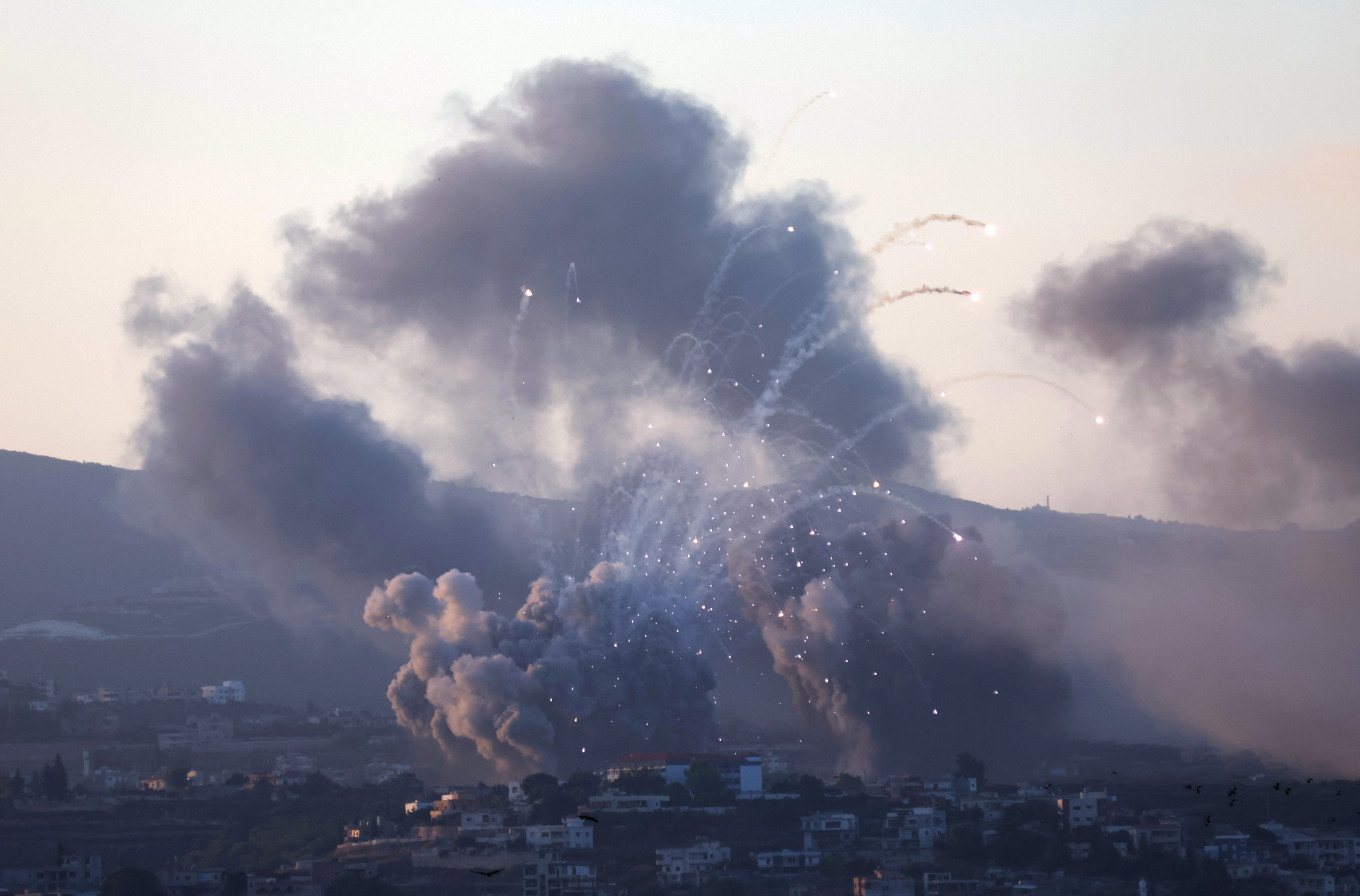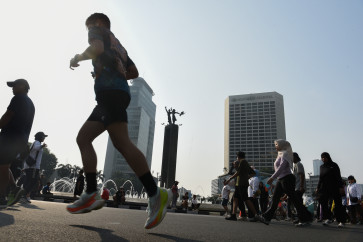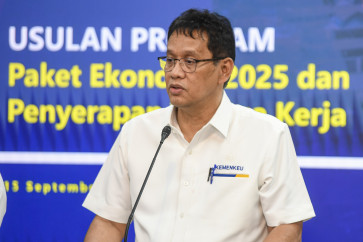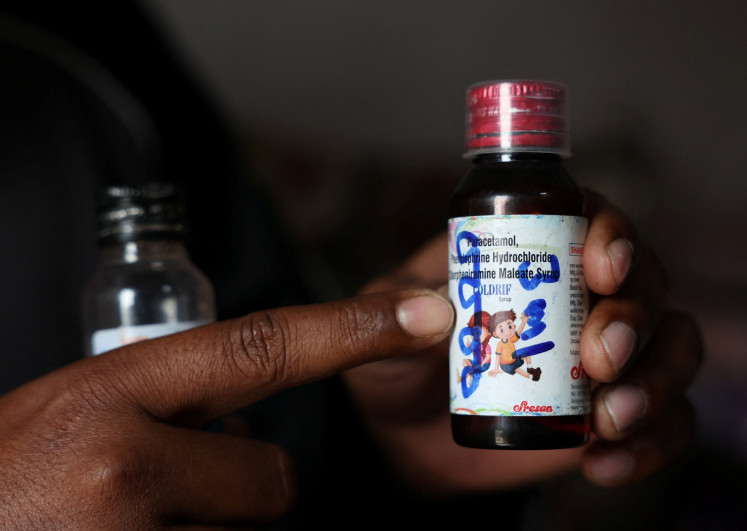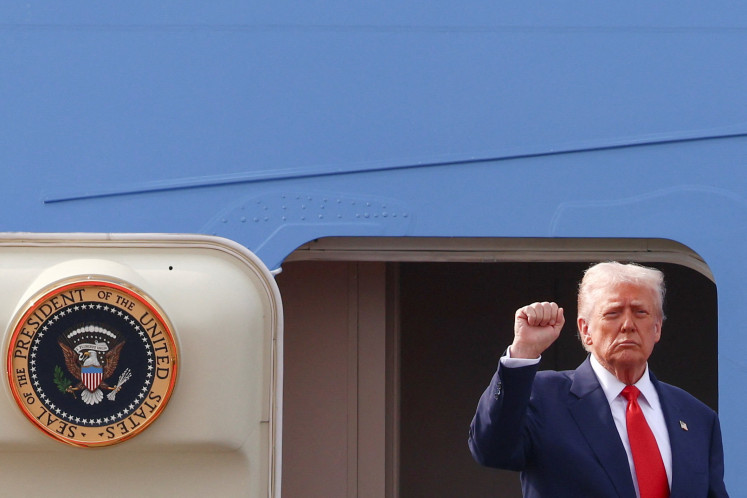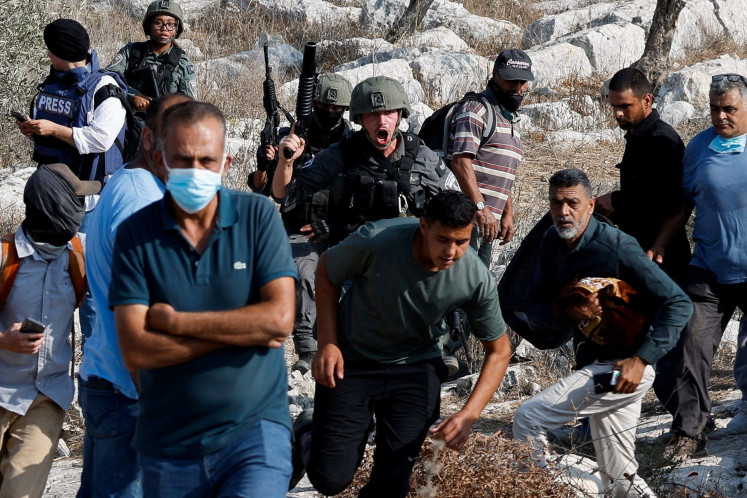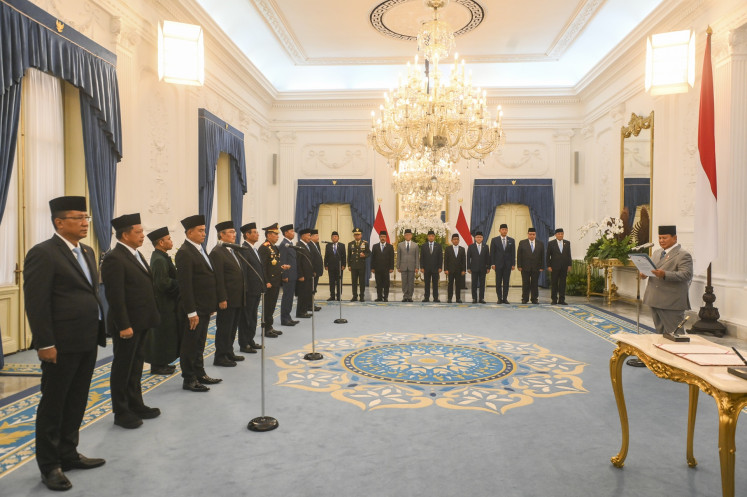Popular Reads
Top Results
Can't find what you're looking for?
View all search resultsPopular Reads
Top Results
Can't find what you're looking for?
View all search resultsIsrael and Hezbollah launch new attacks after deadly day in Lebanon
Israel's military said it hit dozens of Hezbollah targets overnight, a day after carrying out airstrikes against the armed group which Lebanese authorities said killed nearly 500 people and sent tens of thousands fleeing for safety.
Change text size
Gift Premium Articles
to Anyone
I
srael struck Hezbollah targets in southern Lebanon and the Iran-backed group attacked military facilities in northern Israel on Tuesday, increasing fears of a full-blown conflict after Lebanon suffered its deadliest day in decades.
Israel's military said it hit dozens of Hezbollah targets overnight, a day after carrying out airstrikes against the armed group which Lebanese authorities said killed nearly 500 people and sent tens of thousands fleeing for safety.
Hezbollah said it targeted several Israeli military targets overnight including an explosives factory 60 km (37 miles) into Israel, which it attacked with Fadi rockets around 4 a.m. (0100 GMT). It said it also attacked the Megiddo airfield near the northern Israeli town of Afula three separate times overnight.
After almost a year of war against Hamas in Gaza on its southern border, Israel is shifting its focus to the northern frontier, where Hezbollah has been firing rockets into Israel in support of Hamas, which is also backed by Iran.
Lebanese caretaker prime minister Najib Mikati’s office said he would fly to New York, where the United Nations General Assembly is taking place, "for further contacts" following the escalated wave of Israeli strikes on Lebanon on Monday.
The fighting has raised fears that the U.S., Israel's close ally and regional power Iran, which has proxies across the Middle East -- Hezbollah, Yemen's Houthis and armed groups in Iraq -- will be sucked into a wider war.
The strikes have piled pressure on Hezbollah, which last week suffered heavy losses when thousands of pagers and walkie-talkies used by its members exploded in the worst security breach in its history.
The operation was widely attributed to Israel, which has not confirmed or denied responsibility.
Israel's intelligence and technological prowess has given it a strong edge in both Lebanon and Gaza. It has track down and assassinated top Hezbollah commanders and Hamas leaders.
The foreign ministers of the Group of Seven major democracies said the Middle East risked being dragged into a broader conflict that no country would gain from, according to a statement released after they met on the sidelines of the UN General Assembly.
An all-out war could create instability across the Middle East in addition to a devastating war in Gaza which shows no sign of easing.
Israel' potential options could include invading southern Lebanon and further broadening airstrikes to hit more of the Hezbollah-controlled southern suburbs of Beirut or Lebanese infrastructure, including bridges and highways that were blown up in the 2006 Israel-Hezbollah war.
Lebanon can ill afford such destruction as it is still suffering from a catastrophic financial collapse which its leaders have left to fester for five years.

